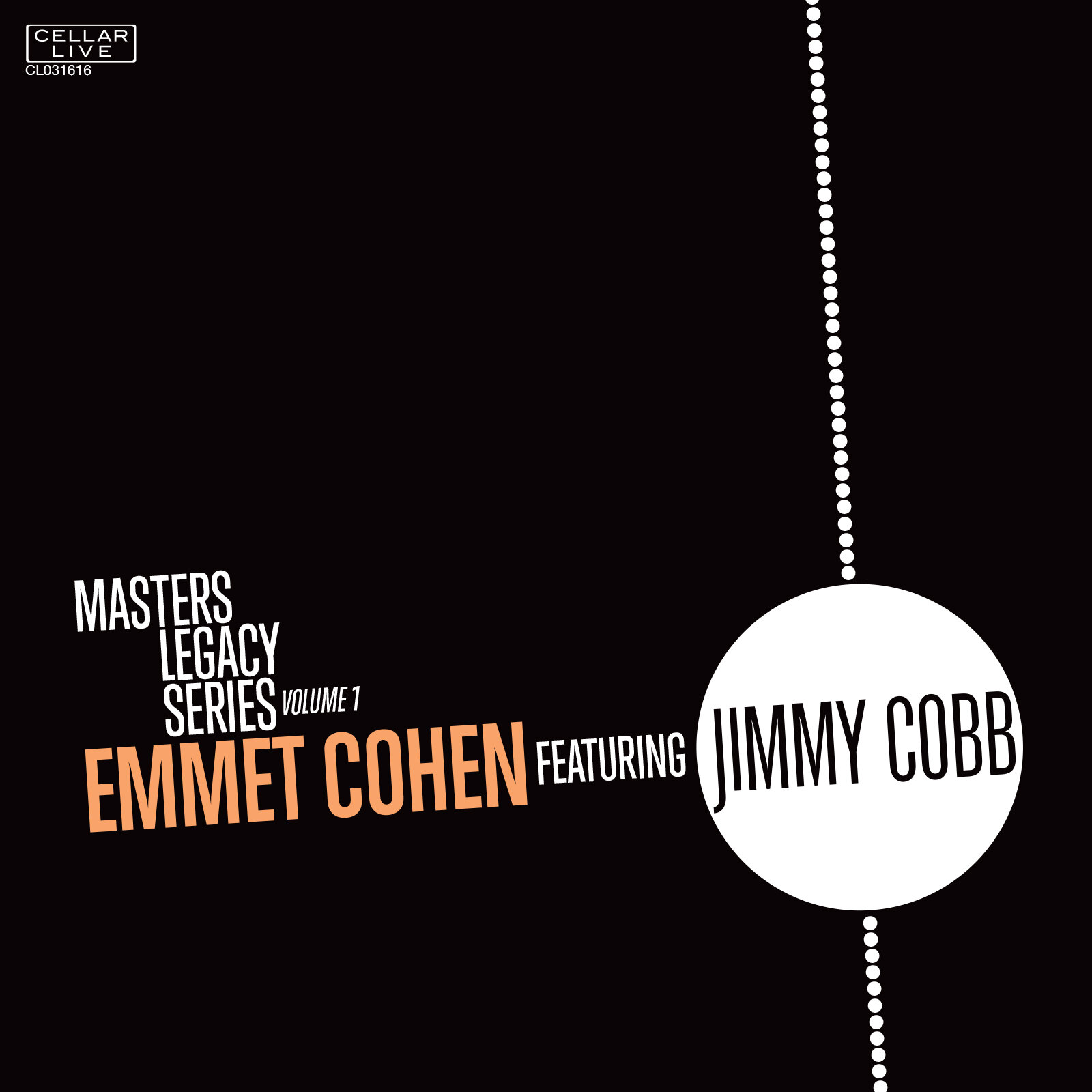MASTERS LEGACY SERIES VOLUME 1 LINER NOTES
My deep commitment, each time my hands touch the keys, is to preserve the history of jazz, and, phrase by phrase, to unveil new angles on the craft, and souls, of the music's revered architects.
This live concert in New York City is the inaugural installment in a series of records and interviews with the prime living sources of jazz world inspiration: the Masters Legacy Series. Living masters of jazz, who started as high-tempo acrobats fifty or sixty years ago, now teach us that the aches of age vanish when we do what we love. Especially when the purpose of what we do is to affirm human dignity and comfort the human heart. John Coltrane's "Alabama" commanded each listener to stand up against racial violence. Dizzy Gillespie toured the world to help dissolve Soviet anti-American propaganda. Louis Armstrong's horn stopped a war in West Africa. Stopped a war.
Jimmy Cobb's drumming tells us that the heartbeat of jazz still oversees the spirit and conscience of American freedom. To play with my fellow Harlemite, to join in preserving the liberating structure and vitality of jazz, is a deep honor.
-Emmet Cohen
Jimmy Cobb embodies the sustained, indomitable power of the swing groove. Mr. Cobb helped Miles Davis (Kind of Blue) create his sound throughout the nineteen fifties while pioneering a uniquely personal, and widely imitated, swing feel. He has graced a multigenerational audience with that legendary infectious feel, on and off the stage. For me, it's very difficult to separate the musician from the man. To be around Jimmy Cobb is a lesson in humility, discipline, and musical consistency. From Dinah Washington to Miles Davis, to Cannonball Adderley to Wes Montgomery, to Wynton Kelly to Sarah Vaughan, to Nat Adderley to Roy Hargrove, to Mike LeDonne to the young Emmet Cohen, any musician worth his salt strives to play and groove with the lifelong consistency of Jimmy Cobb.
For many musicians, learning the importance of just playing the right thing at the right time is a lesson never fully mastered. Since the advent of jazz education, many young jazz musicians have received formal training that produces what we as musicians coin "chops," meaning their technical skills are superior. These days, teenagers with chops are a dime for every two dozen. The drum set, in particular, is an instrument that has been commonly abused by chop-driven practitioners. There's even been a website dedicated to what's known as "gospel chops." Double paradiddles, 7 stroke rolls, back flips, underbrushes, or whatever these chop-crazy drummers do these days, have never guaranteed any of them a place in history, or, more important, a job with a band. Jimmy Cobb has been high on every A-List band roster for almost seventy years, without ever once giving a thought to chops. Don't misunderstand: He has them, but Jimmy never overdoes it. He simply concentrates on laying down the best groove possible, elevating the band, and providing an unbending backbone for the others to rest upon. Jimmy Cobb has not changed the way he's swung since the nineteen fifties. And he has not lost any of the firepower which has impelled musicians to find an opportunity to play with Mr. Cobb.
What sets Emmet Cohen apart is that he plays with maturity beyond his years, demonstrating technical expertise and sophistication in musical choices. Those choices are rooted in Emmet's deep respect for those who have come before him. He treasures the lessons learned through playing with jazz masters.
I've known Emmet Cohen since he was a teenager, living in Montclair, New Jersey. I've watched him mature into one of his generation's most promising pianists. He now plays in my "Special Trio," a band consisting of piano, bass, and guitar, stemming from the tradition of Oscar Peterson, Ahmad Jamal and Nat King Cole.
In this recording, Emmet's own compositions and chosen repertoire display a nuanced appreciation for who Jimmy Cobb is as a drummer and a man. Emmet conceived the Masters Legacy Series to express his love of the musicians who built the world of which Emmet is becoming a prominent citizen. Some day it will be Emmet Cohen who passes the torch to those to come.
Jimmy Cobb first appeared on records playing rhythm-and-blues with Earl Bostic. "Flamingo," from that experience, flexes its pink wings here. Bostic was a pioneer who influenced legends, as John Coltrane readily testified. Jimmy soon set the pace for legends. He played "Two Bass Hit" and "When I Fall in Love" with Miles Davis, and "If This Isn't Love" with Cannonball Adderley. He joined Wynton Kelly and Joe Henderson to transform a Ferde Grofe composition, "On The Trail," from out-west to way-out. On "Hard Times," Jimmy drummed behind David Fathead Newman. Jimmy Cobb again propels all of these tunes in this recording, and a wise listener will find the earlier versions, to understand the ripening of Jimmy's mastery.
That mastery drives this multigenerational band to do what must be done if any tradition is to thrive: make ancient texts come alive in the current moment. Superb New York bass player Yasushi Nakamura joins with Godwin Louis, a charismatic titan of the alto saxophone.
The ensemble unfurls a dynamic sense of exuberance and optimism from deep within Cohen's own compositions: "Folk Song," "Mr. Robinson," written in tribute to Jackie Robin son, and "Concerto for Cobb," expressing genuine affection and respect for Jimmy himself.
-Christian McBride
